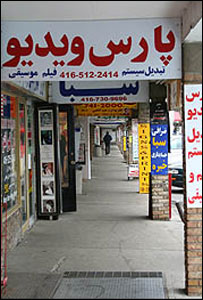Irfani (Gnostic) Tafsir (Exegesis) of
Surah Al-Fatiha 
Eclectic Collection from Rumi’s
Masnavi and Divan Kabir
Discussion Join
إِيَّاكَ نَعْبُدُ وَإِيَّاكَ نَسْتَعِينُ
1:5 ‘Iyyāka-Na’bud (You we
serve) and/while ‘Iyyāka-Nasta’in (You we
seek aid from)
The flower of beatitude grows not
except by Your Divine Face
My love, ‘Iyyāka-Na’bud (You we
serve) shall never be without
‘Iyyāka-Nasta’in (You we seek aid from)
(K 854/2)
زیرا گل سعادت بیروی تو نروید
ایاک نعبد ای جان بینستعین نباشد
Dara: What flower can bloom with beauty without facing the Divine Face?
And how can the services of servant blossom with any sort of beauty
(Ihsan) unless facing Allah’s Divine
Face? ‘Iyyāka-Na’bud (You we
serve) blooms only while seeking the effulgent direction of the Divine
Face and that seeking is ‘Iyyāka-Nasta’in (You we seek aid from); like
unto a flower turning towards the direction of the light. How can a
flower bloom without the light? How can a servant serve without the
effulgent beauty of the Master?
The invocation of the orchard in
winter: ‘Iyyāka-Na’bud (You we serve)
And its words during the fresh
spring: ‘Iyyāka-Nasta’in (You we seek aid from)
ایاک نعبد است زمستان دعای باغ
در نوبهار گوید ایاک نستعین
Dara: During the winter of scantiness we are all slaves to one Master
until the arrival of the spring when plentiful provisions divert our
attention from the Master to our Selves, from That Beloved to many
beloveds; and as such as we seek the aid and help of Allah to keep
our
attentions towards IT/Him: ‘Iyyāka-Nasta’in (You we seek aid from).
‘Iyyāka-Na’bud (You we serve) is when
I arrive like a beggar (at Your gate)
Open the gates of happiness, forsake
me not in this sorrow
ایاک نعبد آنک به دریوزه آمدم
بگشا در طرب مگذارم دگر حزین
‘Iyyāka-Nasta’in (You we seek aid
from) due to heaviness of the fruits
Breaks me (like a tree branch) thus
preserve me O The Benefactor
(K 2046/2)
ایاک نستعین که ز پری میوهها
اشکسته میشوم نگهم دار ای معین
Dara: We are all branches in the same tree of servitude for the Lord of
the Multiverse until such time the blessings of the Divine Endowments
snaps our backs, breaks us like branches, and out of deviant
Self-confidence, we are no longer verdant branches, but broken unliving
twigs, scattered unloving individuals.
Upon the lover’s forehead the
inscription of ‘Iyyāka-Na’bud (You we
serve)
In the lover’s eyes the amorous
gestures of ‘Iyyāka-Nasta’in (You we
seek aid from)
(K 2053/4)
در طرههاش نسخه ایاک نعبد است
در چشمهاش غمزه ایاک نستعین
Dara: Earlier in this poem Rumi advises the listener to only keep the
company of the lovers:
با عاشقان نشین و همه عاشقی گزین
با آنک نیست عاشق یک دم مشو قرین
of course the lovers who love That Divine
Beloved. Therefore when you look at the faces of these lovers all you
see is Iyyāka-Na’bud (You we serve) and when you pierce into their eyes
all you find is ‘Iyyāka-Nasta’in (You we seek aid from). So they are no
longer made from the flesh and psychology, but these lovers are made
from the exotic substances of ‘Iyyāka-Na’bud (You we serve) and
‘Iyyāka-Nasta’in (You we seek aid from).
‘Iyyāka-Na’bud (You we serve) within
the moans of the yearnings
In troubles, ‘Iyyāka-Nasta’in (You we
seek aid from) sought-after for none but You
همچنانک ایاک نعبد در حنین
در بلا از غیر تو لانستعین
This ‘Iyyāka-Na’bud (You we serve) as
the reduction of scope (Hasr)
Within the grammar, for the purpose
of negation of hypocrisy
هست این ایاک نعبد حصر را
در لغت و آن از پی نفی ریا
‘Iyyāka-Nasta’in (You we seek aid
from) also because of reduction of
scope (Hasr)
Limiting the reach of ‘seeking’ and
thus shortening the range of the
scope (Qasr)
(M 2929-31:4)
هست ایاک نستعین هم بهر حصر
حصر کرده استعانت را و قصر
Dara: When we need help we cast a wide net to fish for any measure of
help and gain; but both the range of casting of the ‘Iyyāka-Na’bud (You
we serve) and ‘Iyyāka-Nasta’in (You we seek aid from) are quite
miniscule since they are to net the aid of Allah and none
else; and yet
Allah is closest helper at all times to every servant. Rumi goes on to
teach the grammar of the verse by introducing the Arabic concepts of
Hasr (Scope) and Qasr (Shortening) which comprise a unique grammatical
construct suitable to implicitly indicate the exclusivity of serving
and seeking.
Itqan
By Suyuti
Hasr, also called Qasr, is for specializing a form of exclusivity by
some alternative method/specification/entity. ‘Iyyāka-Na’bud (You we
serve) utilizes the Hasr to limit the scope of the serving exclusively
for Allah
and none else. Some grammarians have claimed that the
antecedence of ‘Iyyāka (You) prior to Na’bud (We serve) as opposed to
Na’budu-Ka(We serve You) is for the purpose of using the utility of the
exclusively limited scope of the service. There is however a difference
between the Hasr (Limiting the Scope) and Ikhtisas (Specialization) for
Hasr carried the (implicit) concept of negation i.e. non-else other
than who/what was mentioned and yet Ikhtisas (Specialization) uses no
negation and utilizes other methods. (Therefore ‘Iyyāka-Na’bud (You we
serve) means ‘We serve no one else but You’ and that is achieved by
pushing the You to the beginning of the sentence. And the said negation
is reflected into the text of the poem i.e. “for the purpose of
negation of hypocrisy” meaning we seek on one else other than You, and
that is to avoid the hypocrisy of seeking help from others while you
are so readily available to provide aid at all times.)
الإتقان في علوم
القرآن السيوطي
النوع الخامس والخمسون
في الحصر والاختصاص
أما الحصر ويقال له القصر فهوتخصيص أمر بآخر بطريق مخصوص.
والثاني هو الاختصاص وأنه هو الأهم عند المتكلم، وهوالذي قصد إفادته
السامع من غير تعرض ولا قصد لغيره بإثبات ولا نفي، ففي الحصر معنى زائد
عليه وهونفي ما عدا المذكور، وإنما جاء في هذا إياك نعبد للعلم بأن قائليه
لا يعبدون غير الله تعالى،
والفضلاء لم يذكروا في ذلك لفظة الحصر، وإنما عبروا بالاختصاص.
والفرق بينهما أن الحصر نفي غير المذكور وإثبات المذكور، والاختصاص قصد
الخاص من جهة خصوصه،
اهْدِنَا الصِّرَاطَ الْمُسْتَقِيمَ
1:6 Ihdinā (Guide us (towards))
Al (The) Sirat-Al-Mustaqim (The
Straight Path)
Ihdinā (Guide us (towards)) you said
and then Sirat-Al-Mustaqim (The
Straight Path)
Held your hand and took you to all
comforts and felicity
(M 3420/4)
اهدنا گفتی صراط مستقیم
دست تو بگرفت و بردت تا نعیم
Because of this, this believer
invokes out of fear
During the prayers: Ihdinā (Guide us
(towards)) Al (The)
Sirat-Al-Mustaqim (The Straight Path)
(M 2241/1)
بهر اینمؤمن همیگوید ز بیم
در نماز اهد الصراط المستقیم
As a relief for all these fears
It appears in every prayer: Ihdinā
(Guide us (towards))
(M 3405/1)
از برای چارهی این خوفها
آمد اندر هر نمازی اهدنا
Every breath the scent of what heart loves comes from Sirat-Al-Mustaqim
(The Straight Path)
So you might not say: The one who made this roaming Ishq to walk, is
where?
هر نفس بوی دل آید از صراط المستقیم
تا نگویی عشق ره رو را که راه آورد کو
As you become confused and defocused
and lost
Say by the tongue of Hāl (Circumstances): Ihdinā (Guide us
(towards))
(M 3752/4)
چونک حیران گشتی و گیج و فنا
با زبان حال گفتی اهدنا
Being pulled along a single path of
Sirat-Al-Mustaqim (The Straight Path)
Far better than the doubtful choice
of a fork on the road, O honorable
friend
(M 204/6)
جذب یک راههی صراط المستقیم
به ز دو راه تردد ای کریم
Dara: Lisan Al-Hāl or the language of the circumstances is an
anthropomorphic usage of the language of the Arab which is found within
the Qur’an:
41:11 Moreover IT/He
comprehended in ITs/His design the sky, and she
had been (as) smoke: IT/He
said to her (sky) and to the earth: "Come
together, willingly or unwillingly." They said: "We do come (together),
in willing obedience."
This is when the language extends itself beyond the realm of physically
observed objects to become a voice for the voiceless circumstances.
Another such example from Qur’an:
14:45 "And you stayed in the dwellings of men who wronged their own
souls; you were clearly shown how We dealt with them; and We put forth
(many) parables for you!"

We live on the land and in the houses of expired folk whom Allah
removed from this earth, either by means of natural processes or by
destructive forces. And the fact that we are peacefully living in
quarters that previous blood was shed and tremendous suffering was felt
talks to our intellect and gives us, Ihdinā (Guide us (towards)),
instruction and suggestions as how to continue our lives to avoid what
happened to those before us. For example I live in Toronto and prior to
the coming of the White Man there were countless tribes of Native
Americans living here for thousands of years. And yet Allah’s destiny
was for them to removed by harsh and bloody means from their own land
and now here I am a Persian: Eating from their land and living on it
without any thought given to the previous generations of Indians who
occupied my quarters; Dara's carelessness is what Qur’an tells us to
avoid by giving the circumstances of life a voice i.e. Ponder and see
what happened to those who lived here before you! To avoid the same
injustices for you and your neighbors and stop wrongful measures of
your hand against the people: Ihdinā (Guide us (towards))
Toronto's Lisan Al-Hāl:
Aziz-e Delam (Dearest to my heart) it is all about the Raftan
(Departure) not about the Cārevān-Sarā (The rest stop on the way)...
Raftam Rafti Raft Raftim Raftin Raftand ... Ihdinā Guide us towards
Raftan....

©
2009-2002, Dara O
Shayda



